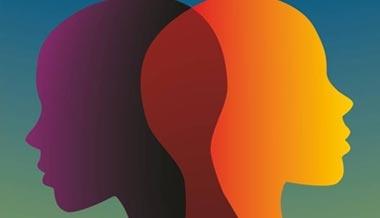BSW vs. Bachelor's in Psychology: What’s the Difference?
A detailed comparison of social work and psychology bachelor’s degrees including core subjects, skills and competencies, career opportunities and requirements.

When choosing a college degree, students may find themselves torn between two seemingly similar fields: psychology and social work. Both disciplines involve working with people and helping them navigate their emotional and mental well-being. However, the focus and approach of each specialization can differ widely.
In this article, we'll explore the core features, similarities and differences of Bachelor of Social Work (BSW) and Bachelor of Psychology (BA or BS Psychology) programs to help you make an informed decision about which path to pursue.
Let’s start with a side-by-side comparison of BSW vs. Bachelor's in Psychology:
| Program Features | Psychology Bachelor's | Bachelor of Social Work (BSW) |
|---|---|---|
| Educational Focus | Human behavior and mental processes | Social, economic, and environmental factors |
| Core Subjects | Abnormal psychology, developmental psychology, cognitive psychology, research methods, statistics | Social welfare policies, human rights, social justice, case management, counseling techniques |
| Skills Developed | Research, analytical thinking, critical thinking, communication, interpersonal skills | Active listening, empathy, cultural competency, advocacy, community engagement |
| Career Paths | Counseling, human resources, marketing, research | Case management, mental health counseling, child & family services |
| Work Settings | Schools, hospitals, government agencies, non-profit organizations, private practices | Community-based organizations, healthcare facilities, schools, government agencies |
| Clinical Practice Requirements | Doctorate degree and state-specific licensure | Master's degree and state-specific licensure |
Now let’s dig a little deeper into the core features of BSW and Psychology Bachelor programs:
Educational Focus
BA/BS Psych
A Bachelor's degree in psychology focuses on the scientific study of human behavior and mental processes. Students explore the human mind, emotions, cognition and perception, as well as targeted fields like abnormal and developmental psychology. They are taught various research methods and statistical techniques to analyze and report on psychological data.BSW
A Bachelor of Social Work emphasizes the social, economic and environmental factors that impact individuals, families and the community. Students learn about social welfare policies, human rights and social justice. BSW candidates are trained in various intervention strategies, case management and counseling techniques to help clients overcome life challenges.Career Paths
BA/BS Psych
Graduates with a psychology bachelor’s degree can pursue careers in a wide range of fields, including counseling, human resources, business, marketing and research. However, to become a licensed clinical psychologist or to practice in a specialized field like neuropsychology or forensic psychology, one must obtain a doctorate degree (Ph.D. or Psy.D.) and complete state-specific licensure requirements.BSW
A bachelor’s of social work prepares students for entry-level social work positions, such as case managers, mental health counselors, or child and family services workers. To advance in the field or become a licensed clinical social worker (LCSW), graduates must obtain a Master's degree in Social Work (MSW) and meet state-specific licensure requirements.Skills & Competencies
BA/BS Psych
Psychology students develop strong research, analytical and critical thinking skills. They learn to understand human behavior, interpret data and design psychological interventions. They also develop effective interpersonal communication skills, which are essential for working with clients in various settings.BSW
Social work students acquire skills in active listening, empathy and cultural competency. They learn to assess client needs, create intervention plans and navigate complex social service systems. They also develop strong advocacy and community engagement skills to address social issues and promote social change.Work Settings
BA/BS Psych
Psychologists work in a variety of settings, such as schools, hospitals, government agencies, non-profit organizations and private practices. Depending on their specialization, they may conduct research, provide therapy, or consult with organizations to enhance employee well-being and productivity.BSW
Social workers typically work in community-based organizations, healthcare facilities, schools and government agencies. They may help clients access social services, provide counseling and support, or develop and implement social programs to address community needs.Related: Psychology BA vs. BS
Conclusion
Both psychology and social work offer rewarding careers centered around helping individuals and communities. While a psychology bachelor’s degree focuses on understanding the human mind and behavior, a bachelor's in social work emphasizes the societal context and intervention strategies for addressing life’s challenges. Prospective students should know the differences between these programs, and consider their interests, career goals, and skills they want to master when choosing between a BA/BS in Psychology and BSW.
